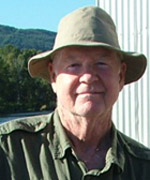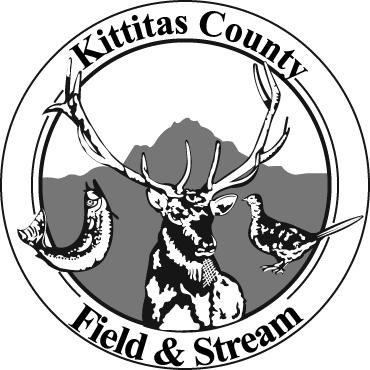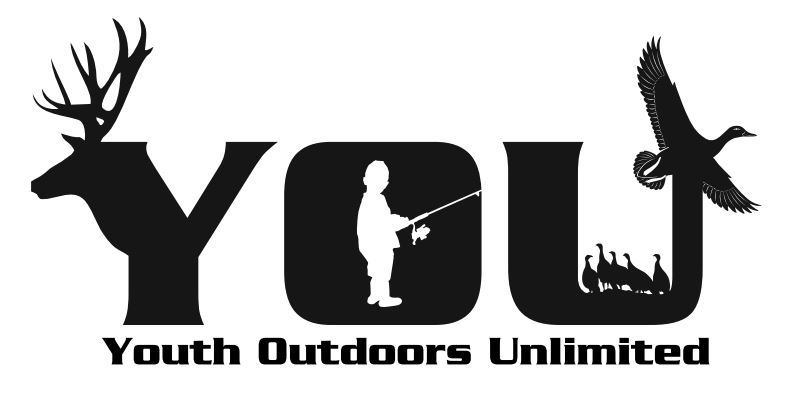Archive for June, 2015
Reflections on Fathers and Dads
I thought about writing this a week ago, in anticipation of Father’s Day. I opted for reflection rather than anticipation. Thus, this consideration of fathers and dads, and the legacies of caring, providing and thinking ahead with which they imbue us.
I had one of each – a father and a dad – and have always counted myself lucky. My father Robert (my “Old Man”) was followed by Ray Fontes (my “Dad”). I have been reflecting on some of the traditions and laughter they left me and various kids among my Hucklings.
The Old Man started referring to himself that way when he was all of 25, I think. Over time, I realized that he probably felt like an old man at times. He lost his father to a heart attack (they called it “apoplexy” in those days) when he was ten years old, and immediately went to work. He valued hard work and long hours and had little patience with laziness. While I eventually figured out that working hard to feed and house his growing family was his way (and maybe all he knew) of showing love and commitment to us, I resented the work ethic that kept him from fishing and hunting and wandering afield with me when I was small. I was born wanting to hunt and fish and be outside, and while he and my mother made sure I had all of those activities I wanted, I early on gave up on seeing any interest in him for them.
Something happened about the time I hit those ‘tween years. It was a bright November Saturday in East Wenatchee. We’d pretty much finished rebuilding a house over our burned-out basement home, and we were putting on the roofing. Opening day for pheasants was well behind us; my prodding went for naught – he was focused on getting a new roof over our heads.
A rooster pheasant started crowing from Barney Greenwood’s apple orchard a couple hundred yards off. Each time that old cock threw down his challenge, the Old Man would stop tacking shingles for a moment. I’d never seen him like that – something deep in his soul tugging at him. He’d tack a shingle down, the bird would cackle and he’d hang his head and grimace.
Finally, he handed me his nail pouch and hammer. “Tack these down,” he said, “and wait here.” He slid to the ladder and climbed down. Moments later, I watched him walk toward the orchard, loading his old Sears J.C. Higgins bolt-action 12-gauge.
I heard the cackle as that rooster flushed. And one shot. Mom walked into the back yard, as he handed her the bird, the shotgun and a “Thanks, Dorothy.” On the roof, he asked for his nail pouch and shingles. He was smiling.
After that, we regularly hunted his beloved California quail (his “topknots), pheasants and deer. We found time to fish, with trips right up to his too-early death for salmon and antelope with sons and older Hucklings. He was never a big laugher, but we still carry his warm smile, his coaching about shooting and fishing and good food and why there were rules for fishing and hunting.
Ray Fontes, my stepfather, was “Dad” to me for 42 years. A skilled diesel mechanic, he was as madly in love with my mother as she was crazy about him. He loved the woods. Over years that stretched into decades, I taught him to hunt Wyoming antelope and Colorado elk, and he taught me humor, strength and love. I got the best of the deal.
Dad was one of the off-the-cuff funniest guys I ever knew, with a great story or quip for any moment. He’d pass food at a meal, with “Here, want the rest of this?” If someone asked him if he wanted more at the end of a meal, he’d nod “You bet!” and add “…Tomorrow.” Food would be “Good enough for any dog” or “Mighty fine kye-kye!” Once, a granddaughter hugged and thanked him for fixing her car. Dad just smiled and said, “Keep the change.”
The Hucklings had his love and time, too. Eldest sons James and Tim had fishing and hunting time. First daughters Michelle and Nicole never missed a hunting trip. Michelle and dad had their own antelope adventures, over which their ping pong teasing would last a year – Michelle would swear that “next year” she would outshoot granddad. Nicole, who hated school, but loved biology, was always after him for “two more antelope eyeballs,” or some other part she might trade her science teacher for a better grade.
Younger daughters Tena and Anna would proudly hand him whatever they’d caught. What a fuss he made about how he loved trout or ocean perch or crab or rockfish, and how he hung on every word of their story. “What fine fishers you are,” he would say, “to provide such fine ‘kye-kye’ to grandma and me.” They couldn’t wait to get out and do it again. Edward, last of the Hucklings, was in that joyful mix, too. They still talk about his laugh.
At some point, Dad’s big heart caught up with him and he quit the woods. He spent more and more time in some wild place of his mind, as Alzheimer=s disease slowly took its toll.
Every time I go afield with my now-grown Hucklings and their kids, I think about what The Old Man and Dad would want them to know and enjoy; it’s my job now.
So, here’s to you and me and to our fathers and dads, as we each carry on some sort of year-long Father’s Day reflection.
Comments Off on Reflections on Fathers and Dads
Picnics and Little Rodents
Homey and his family journeyed to the Upper County last weekend for a day in the woods along the Cle Elum River. Somewhere in there, they apparently shared a picnic with little furry guests.
“You know,” he said, “those chipmunks are just miniature rats with furry tails. …But they know how to keep the attention of ten- and twelve-year-olds. It was a great kickoff to summer, but all the way back, Mel was wanting to argue about whether they were really chipmunks. All those little guys are chipmunks, Right?”
As you know, as chair of the Wildlife Education Subcommittee of the Reecer Creek Rod, Gun, Working Dog & Outdoor Think Tank Benevolent Association (RCRGWD&OTTBA), I am sworn to set aside all other interests to answer such questions. Thus, this week’s exploration.
Think about it: what is a picnic or camping trip without those little ground squirrels? Their friendly hustle, bustle and scurry delights children of all ages. We mostly just call them “chipmunks,” but only three of Washington’s eleven ground squirrels are the real deal.
One ground squirrel or another will be found most anywhere in our state. It may be the tiny least chipmunk (four inches long, one ounce) or the hoary marmot (30 inches and fifteen pounds) or one somewhere in between. It will eat seeds, nuts, berries, flowers, grasses, leaves and insects.
All eleven are ground squirrels, but not all the striped ones are actually chipmunks (which all do have stripes). So which is which? We can easily eliminate our three marmots from the quest, along with the spotted, or dappled, ground squirrels. It now becomes a simple matter to separate chipmunks from the lined ground squirrels; chipmunks all have “masks.”
There are less obvious differences, too. Consider how these critters survive winter.
Chipmunks do not hibernate. They may appear to hibernate in some locales, but they generally put away food for winter, to be used between quite a few several-day-long underground naps. (In some Native American cultures, this trait is a teaching – a reminder – of gathering and preparing for winter. The chipmunks of Paradise are the least, Townsend=s and yellow-pine, and are quite similar in appearance (even experts can have trouble differentiating among them). The Townsend=s is most widespread, and most likely at your table, but any one of them could bound up to your family during your next picnic or camping trip.
Our three marmot types (yellow-bellied, hoary and Olympic) are found in rocky pasture areas from the lower foothills to well above timberline. They hibernate, having laid on masses of body fat to see them through winter.
The remaining five of our ground squirrels (California, golden-mantled, Columbian, Cascade golden-mantled and Townsend=s) are also generally hibernators, surviving winter on body fat reserves.
In keeping with the by-laws of the RCRGWD&OTTBA, I offer the following scientific names for our Washington ground squirrels. Marmots: yellow‑bellied (Marmota flaviventris), hoary (Marmota caligota), and Olympic (Marmota olympus). Chipmunks: yellow-pine (Tamias amoenus), least (Tamias minimus), and Townsend=s (Tamias townsendii). Ground Squirrels: California (Spermophilus beecheyi), golden‑mantled (Spermophilus lateralis), Columbian (Spermophilus columbianus), Cascade golden-mantled (Spermophilus saturatus), and Townsend=s (Spermophilus townsendii).
To learn more, check out the National Audubon Society=s “Field Guide to the Pacific Northwest,” or any of several good field guides. If you are interested in Native American views of these or others of the animals of Paradise, I recommend “Medicine Cards” by Jamie Sams and David Carson.
They’ll find you at most any picnic. Look closely, laugh and enjoy. Resist the urge to touch them or to feed them. They may carry fleas, and they have a nasty bite. Then, too, as with all the other critters we enjoy in the woods they must survive after we leave.
And remember: chipmunks have masks.
Comments Off on Picnics and Little Rodents
That Pesky I-594, Continued…
You may recall last fall’s conversations about Initiative 594, the statewide “background check” law which was passed by Washington voters. The last column I wrote about that initiative was published on the Daily Record’s Editorial Page – I had rather strong opinions on the matter. What got me writing about this now is a community event happening next Thursday, June 18, at Hal Holmes.
The Cascade Field and Stream Club, in partnership with the Kittitas County Field and Stream Club, will sponsor Adina Hicks, J.D. at the 7 pm event next week. Hicks is the Executive Director of Protect Our Gun Rights Washington and the newly appointed Washington State Director of Education for the Second Amendment Foundation. She served as one of the Washington state Campaign Field Representatives for the National Rifle Association “No on I-594” campaign, has been a legislative aide in Olympia and the Campaign Coordinator for Supreme Court Justice Richard Sanders. She will speak to Second Amendment issues, and activities related to I-594 since the election.
You are probably aware of a couple recent efforts to overturn or modify the provisions of I-594.
Work to pass legislation came up short, largely because – except with a super-majority (two-thirds) vote – initiatives passed by voters cannot be legislatively modified for at least two years after becoming law. While there are enough votes to modify some portions of the initiative, the goal is for a larger action. That did not happen in the 2015 Legislative Session.
A group of citizens took the initiative to court, but their suit was thrown out because they could not show that they had been harmed by the law’s provisions. The bottom line of all that was that – given the extreme penalties for the Class C felonies built into the law – none of the parties to the lawsuit had been willing to violate key provisions of I-594 and get themselves arrested, so they had not been “harmed.”
Over the past few months, there have been a number of impacts (including program suspensions) to youth shooting programs, to some firearms safety training classes and to how business has been done at gun shows across the state. Some of the changes under the new law are so confusing that a number of law enforcement officials across the state have refused to react in a number of circumstances. Washington Arms Collectors is a membership organization which probably sponsors the majority of firearms shows across the state has instituted a $10 fee for private firearms transfers among its members.
Time will tell, of course, whether any provision of Initiative 594 makes us or our children safer. I have yet to see that other states which previously passed similarly restrictive transfer rules are bragging about new levels of safety for their residents and citizens.
There are many good reasons that the 6,500 members of the Washington Council of Police and Sheriffs opposed I-594. I have yet to talk with anyone living under our Constitution and Bill of Rights who can identify a situation in which we changed criminal behavior by criminalizing lawful behavior. I have yet to see what is gained by the provisions in I-594 which criminalize behaviors which have been accepted as ethical and honorable for hundreds of years.
After numerous conversations with businesses and individuals, it is even more clear to me now that last fall’s vote made many of our firearms traditions difficult and/or illegal and altered the way we law-abiding citizens use and enjoy our firearms. In my view, it seriously impacts our ability to keep and bear arms.
This is not one of those “West-side” issues. I-594 passed 59% to 41% – statewide and in Kittitas County. Let me put this in context; if your friends represent a cross-section of Kittitas County (as I think mine do), two of every five of them consciously voted to mess with your ability to use and enjoy your firearms.
The joint Field & Stream event with Adina Hicks is next Thursday at 7 p.m. at Hal Holmes. Adina will discuss provisions in the Federal and State Constitutions that protect our right to keep and bear arms – and recently passed Washington laws that infringe on that right. Lively conversations are anticipated. You are welcome.
Comments Off on That Pesky I-594, Continued…
About Kid Camping and Fishing
We spent a few days in Denver last month, integrating brand new grandbabies into the family mix and harassing those old enough to harass back. Somewhere in there were invitations to come to Paradise and do a little fishing and camping and shooting. And there was a handful of conversation about taking all those grand-Hucklings out into wild places.
Most of the conversation was about one or another of the adventures they had enjoyed as they were growing up, and the desire among my now-grownups to help their own kids make those sorts of memories.
Over several decades, one group of Hucklings or the other fished and camped from the prairie lakes and forested rivers of Kansas to the Red Desert of Wyoming and the alpine timber country of the Northwest. Those trips were generally great fun, but as the reminiscing carried on I was flashing back to those kinds of moments that parents manage – but still remember. We manage them so that our youngsters will carry more memories of fun than trouble.
A case in point might be a combination camping, fishing and field trial trip with Freebe the WonderDog in Kansas in June of ’71 or ’72. It was tick season. I don’t recall much about the trip, other than Freebe’s performance and chasing wild children around and through that prairie pond. I will never forget the weeks afterward, however. Tim was six or seven. Of course, we checked the kids for ticks after our trip, found a couple, removed them, and didn’t think much about it. A few days later, Tim came down with aches, fever, and stiffness. The tick we missed had chewed a place the size of my little fingernail on the top of his head. We treated the fever, but his head pulled down onto his right shoulder. I remember fretting as cheerfully as a parent can during the nearly two months it took for his head to return to its normal position. Tim remembers camping and playing with kids and dogs.
Then here are these old kid photos. In one, the three older Hucklings – all under six – are holding hands in front of our old tent trailer, smiles shining through the mud and mosquito bites covering them from head to toe. And there is four-year-old Tim, miserable from mosquito bites, but with a triumphant grin over his first two beaver pond trout. Another is a shot of younger Hucklings Tena and Anna walking across the Red Desert near a sweet-water, mosquito infested spring. Covered with welts from bites, they were holding hands and smelling wild flowers.
Somewhere in those discussions of kid fishing and camping was a resigned “I guess you just don’t count on time for yourself much when you have your kids in the woods, huh?” What could I do? I retold my “Aha…” story.
When the older kids were still too small to do much fishing, we spent late ‘60s time camping in Yellowstone. I can still taste a very early morning on Yellowstone Lake in July. It was one of those mornings when I felt totally alive, when the colors in the morning sun were deep and rich, and the air gently flowed through every cell of my being. I stood at the edge of that clear, cold lake casting for cutthroat trout. If this was my last morning on earth, it would be okay. I was even catching a few 14- and 15-inch cutts.
Down the beach, another guy was fishing. Fiftyish, I guessed, a bit older than most men with young kids (as I was to be with the younger kids). He praised the morning, noted his tough year of work and his need to be fishing again, and nervously rigged his gear for the first cast. Then I understood his nervousness. Down the trail behind him came a woman and two little six- to eight-year-old girls. It was all over. The poor guy would get them rigged, they would cast, and he would turn to his own rod. One time he even got to squat down next to his rod as a fish played with his bait before the cries of frustration over tangled lines, hooked limbs (kids’ and/or trees’), or lost baits drew him away from his own fishing. I was thinking “No thanks.”
Then his wife hugged him and offered to remove the girls so he could relax and fish. He wrinkled his nose up and said, “No… Thanks. I need to relax, yeah, but what I really need is you guys.” He dismantled his gear and got serious about teaching his girls to fish. Last I remember, he was grinning ear to ear, helping the little one unhook a trout. I got it.
My grownups are, and will continue to be, great outdoor kid parents. We talk about today’s public land and water challenges. Still, whatever it takes, our kids have to get out camping.
Comments Off on About Kid Camping and Fishing







